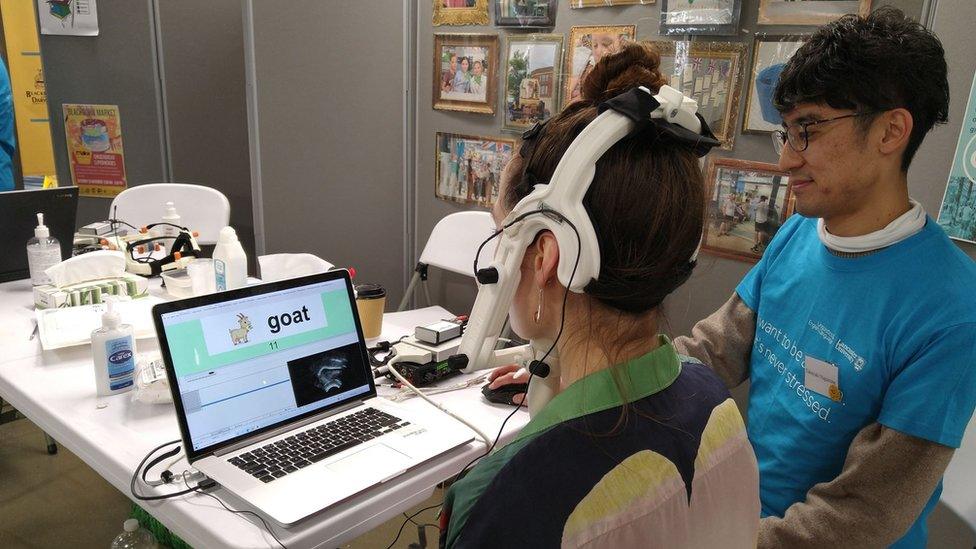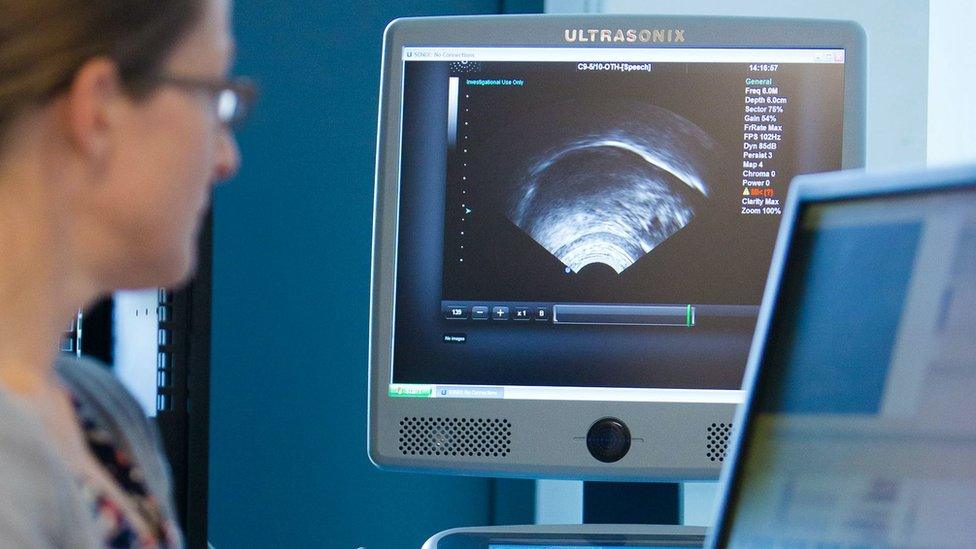Study to look at why Burnley and Blackburn 'speak very differently'
- Published

Researchers are seeking volunteers to have their voices and tongue movements analysed.
People from Burnley have been asked to take part in research aimed at finding out why they "speak very differently" to those from neighbouring Blackburn.
The Lancaster University study will see volunteers with Burnley accents have their voices and tongue movements recorded as they speak.
The results will be compared to Blackburn voices recorded in 2022 with findings due to be published in 2024.
Professor Claire Nance said she was "excited" about what might be revealed.
The two Lancashire towns lie about 11 miles (17km) apart in the east of the county, but the project leader said her team were "told last year - in no uncertain terms - that people in Burnley and nearby Blackburn speak very differently".
"By investigating tongue shapes, using ultrasound imaging, we can look at different types of accents and differences in pronunciation," she said.
"We are, therefore, excited to carry out this research to see exactly how this happens."
'Everyone is welcome'
She said those interested in taking part should go to the Lancashire Tongues event in Burnley Market Hall on Saturday.
The event will be held as part of the national Being Human festival, external, which celebrates the cultural, intellectual, political and social life of the UK.

The researchers will use ultrasounds to see how the volunteers' tongues move to form different speech sounds
She said her team were "looking for 30 to 40 volunteers" aged six and over to "compare with our 35 participants from Blackburn last year".
"We would especially love to work with families and people from the South Asian community, so that we can learn more about all the different accents in East Lancashire," she said.
"The activity takes around 15 minutes in total and is suitable for adults and children.
"Everyone is welcome."
Participants will be invited to read words on a computer screen out loud with a small probe under their chin and a lightweight plastic helmet on their head, which will allow the researchers to get a side profile image of their tongue inside their mouth as they are speaking.
The university said the results would be analysed in its phonetics laboratory and the project's findings would be published in 2024.

Why not follow BBC North West on Facebook, external, X, external and Instagram, external? You can also send story ideas to northwest.newsonline@bbc.co.uk, external